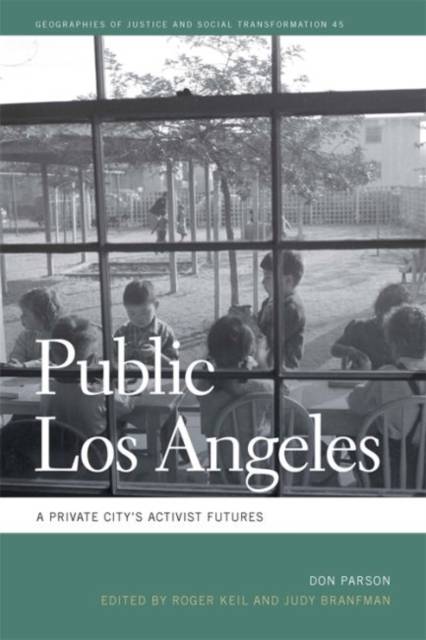
- Retrait gratuit dans votre magasin Club
- 7.000.000 titres dans notre catalogue
- Payer en toute sécurité
- Toujours un magasin près de chez vous
- Retrait gratuit dans votre magasin Club
- 7.000.0000 titres dans notre catalogue
- Payer en toute sécurité
- Toujours un magasin près de chez vous
Description
Public Los Angeles is a collection of unpublished essays by scholar Don Parson focusing on little-known characters and histories located in the first half of twentieth-century Los Angeles. An infamously private city in the eyes of outside observers, structured around single-family homes and an aggressively competitive regional economy, Los Angeles has often been celebrated or caricatured as the epitome of an American society bent on individualism, entrepreneurialism, and market ingenuity. But Don Parson presents a different vision for the vast Southern California metropolis, one that is deftly illustrated by stories of sustained struggles for social and economic justice led by activists, social workers, architects, housing officials, and a courageous judge.
Public Los Angeles presents insights into LA's historic collectivism, networks of solidarity, and government policy. A follow-up to Parson's seminal Making a Better World: Public Housing, the Red Scare, and the Direction of Modern Los Angeles (2005), this volume helps shape our understanding of public housing, gender and housework, judicial activism, and race and class in modernday Los Angeles and asks us if history is repeating. Parson's work anchors a collection of nine essays by friends and mentors who deepen the discussion of his themes: Dana Cuff, Mike Davis, Steven Flusty, Greg Goldin, Jacqueline Leavitt, Laura Pulido, Sue Ruddick, Tom Sitton, Edward W. Soja, and Jennifer Wolch. The book is richly illustrated. Biographical and curatorial essays by the book's editors, Roger Keil and Judy Branfman, provide background material and a coherent storyline for a mosaic of fresh Los Angeles research.Spécifications
Parties prenantes
- Auteur(s) :
- Editeur:
Contenu
- Nombre de pages :
- 270
- Langue:
- Anglais
- Collection :
- Tome:
- n° 45
Caractéristiques
- EAN:
- 9780820356228
- Date de parution :
- 15-11-19
- Format:
- Livre relié
- Format numérique:
- Genaaid
- Dimensions :
- 152 mm x 229 mm
- Poids :
- 566 g

Les avis
Nous publions uniquement les avis qui respectent les conditions requises. Consultez nos conditions pour les avis.






